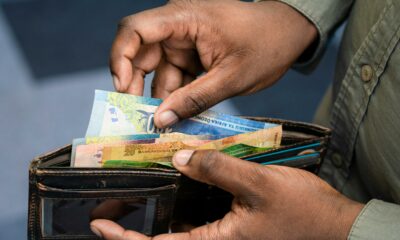News
Let Them Fail: An Economist’s Controversial Case for a Shake-Up in SA Banking

In a country where financial stability is a rare and cherished commodity, the idea of wanting more banks to collapse sounds almost heretical. Yet, this is the provocative argument from renowned economist Dawie Roodt, who believes that for South Africa’s banking sector to truly thrive, it needs a healthy dose of creative destruction.
Roodt, who brings the unique perspective of a former South African Reserve Bank (SARB) insider, isn’t calling for chaos. Instead, he’s challenging the very structure of a system so safe, he argues, it has become stagnant and expensive for everyday South Africans.
The Safety Net That Stifles
There’s no denying that South Africa’s banking system is a fortress. The SARB, through its Prudential Authority, enforces a rigorous rulebook on capital, liquidity, and risk management. If a bank stumbles, the central bank can provide emergency loans. And since April 2024, the Corporation for Deposit Insurance (CODI) has stood ready to protect depositors with balances up to R100,000 if a bank fails.
This framework has created the stable, reliable system we know today. But Roodt sees a downside to this impeccable safety record. “Nothing is going to go wrong with our banking system in South Africa. However, that is not good,” he stated during a recent podcast appearance.
His reasoning? This ultra-stability has created a comfortable oligopoly. The immense cost and difficulty of complying with strict regulations have cemented the dominance of the big five banks, stifling the entry of new, nimble competitors.
The Free Market Prescription
Roodt’s solution is to slightly loosen the regulatory reins. He advocates for an environment where poorly managed banks are allowed to fail, making room for new, better-run institutions to rise.
“This is a process of creation and destruction. That is why a free-market system is vibrant and energetic,” he explains. In his view, the capital and customers tied up in a “zombie” bank should be freed to flow to a more efficient competitor.
This philosophy extends beyond banking. Roodt is similarly critical of business rescue practitioners who keep struggling companies on life support. “Get rid of the zombie companies and make it easier for new companies to be created in South Africa,” he argues.
A Shift in Responsibility
This approach would fundamentally change the relationship between customers and their banks. Currently, Roodt points out, we choose our banks based on perks and pricing, secure in the knowledge that the SARB has already done the hard work of ensuring they are solvent.
He proposes a shift towards personal responsibility. “The responsibility should be on South Africans to pick banks which are financially stable and well run,” he says. In this model, consumers would need to be more discerning, shopping around not just for the best app, but for the most soundly managed institution.
It’s a controversial vision. The thought of losing one’s bank is unsettling, and the memory of past financial crises looms large. Yet, Roodt’s argument forces a crucial conversation: In our quest for absolute safety, have we built a system that protects the entrenched players at the cost of innovation and true competition? It’s a debate that strikes at the heart of what kind of economic future South Africa wants to build.
{Source: BusinessTech}
Follow Joburg ETC on Facebook, Twitter , TikTok and Instagram
For more News in Johannesburg, visit joburgetc.com



























